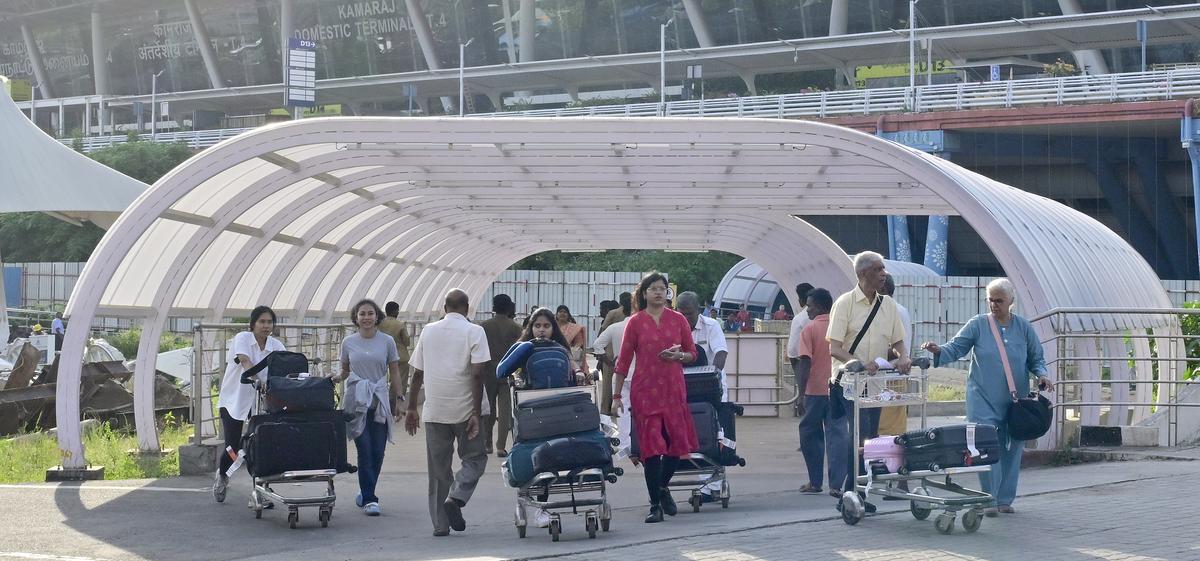Chennai’s airport faces scrutiny over alleged rampant overcharging by cab drivers targeting vulnerable passengers. Despite policies allowing free terminal pick-ups for elderly, pregnant individuals, and new mothers, drivers reportedly demand additional fees, falsely citing parking contractor charges. This issue, amplified by a distant pick-up point, raises significant concerns about service equity and consumer protection within the city’s vital transport infrastructure.
The operational dynamics at Chennai’s international airport are currently under intense scrutiny following a surge in complaints regarding alleged overcharging by cab drivers. This practice disproportionately affects vulnerable segments of the travelling public, including senior citizens, pregnant individuals, new mothers, and those with disabilities. While airport authorities maintain a clear policy permitting free pick-ups directly from arrival terminals for these specific groups, on-ground reports indicate a troubling discrepancy where drivers are demanding additional sums, often falsely attributing these extra charges to the parking contractor. This systemic issue not only undermines consumer trust but also highlights a critical gap in service delivery and regulatory oversight at a key urban gateway.
The genesis of this widespread overcharging appears to be linked to the recent relocation of the primary cab pick-up point to the multi-level car parking lot, situated approximately 800 metres from Terminal 1. For passengers without physical limitations, this distance might be a minor inconvenience. However, for those with mobility challenges, young children, or significant luggage, navigating this distance, often across different floor levels, presents a considerable logistical hurdle. This operational shift inadvertently creates an opportunity for unscrupulous drivers to exploit the vulnerability of passengers seeking closer pick-up access, thereby transforming a convenience into an additional financial burden. Such practices contradict the principles of an equitable and accessible urban environment, where public services should cater to the diverse needs of all citizens without discrimination.
The parking contractor managing the airport’s designated spaces has vehemently denied any involvement in these additional charges. Representatives from the contractor explicitly stated that their agency adheres strictly to prescribed pick-up fees, which are nominal per vehicle. This clarification places the onus squarely on individual cab drivers or certain cab aggregator platforms that may not have established protocols for such special pick-ups. The disconnect between official policy, contractor statements, and on-ground driver behaviour points to a complex issue requiring robust enforcement mechanisms and transparent communication channels to protect consumers. The lack of clarity at the point of service delivery leaves passengers susceptible to exploitation, undermining the overall customer experience at a major international airport.
Representatives from the airport’s pre-paid taxi union have asserted that their affiliated drivers do not engage in such illicit practices. They claim that their booking counter personnel proactively communicate with the parking contractor’s staff to facilitate terminal pick-ups for eligible passengers, ensuring vehicle access without additional charges. This suggests a potential disparity in service standards and accountability between traditional pre-paid taxi services and newer cab aggregators. If certain aggregators lack a similar facility or oversight, it could contribute to the proliferation of overcharging, creating an uneven playing field and further disadvantaging vulnerable passengers who might rely on these platforms for convenience.
Airport authority officials have acknowledged receiving complaints regarding overcharging and have stated that the parking contractor has been instructed to sensitise cab drivers against collecting additional fees from passengers. While this is a necessary step, the persistence of the issue indicates that a more comprehensive and proactive approach is required. Effective solutions would involve not only driver sensitisation but also stringent monitoring, clear signage at terminals, easily accessible complaint mechanisms, and immediate punitive action against those found to be in violation of established policies. Leveraging technology to track pick-up locations and fare disbursements could also provide a transparent audit trail, enhancing accountability across the service chain.
This issue extends beyond mere financial impropriety; it touches upon the fundamental tenets of creating a sustainable, gender-neutral, and equitable city. An urban environment that truly prioritises its citizens must ensure that its public and semi-public services are accessible, affordable, and respectful of the dignity of all individuals, especially those with specific needs.
Also Read :Kolkata Airport Posts Record Profit Leads AAI Network Revival Efforts


